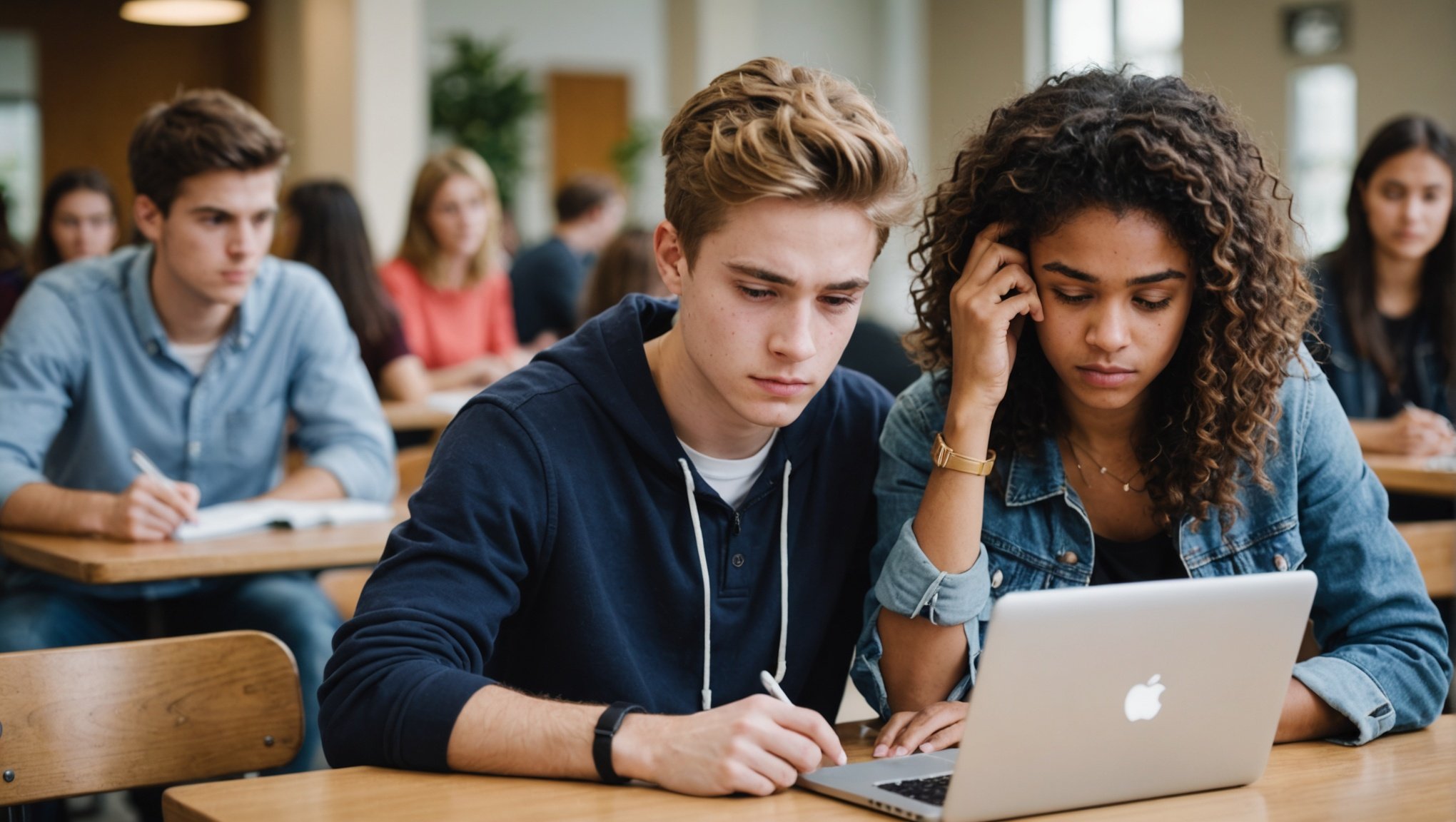In the digital age, the prevalence of social media usage among students has become a topic of significant interest to educators, parents, and health professionals. Crossref and PubMed articles abound discussing the potential correlations between social media use and the mental health of university students. This article aims to delve into the psychological implications of these relationships, particularly focusing on anxiety levels.
The Prevalence of Social Media among University Students
Universities worldwide have experienced an unprecedented surge in the use of social media platforms. Students use these platforms for a variety of reasons, including staying connected with friends and family, networking, and for academic purposes. However, this increase in social media use has raised concerns over its potential effects on the mental health and well-being of students.
In parallel : How Effective Is Platelet-Rich Plasma Therapy in Treating Chronic Tendon Injuries?
According to multiple studies available on Google Scholar, the average university student spends between two to four hours a day on social media. This high rate of usage can lead to excessive exposure to digital content, which, in some individuals, may induce stress, anxiety, and depression.
Social Media and Anxiety: Exploring the Correlation
Several studies have suggested a correlation between the time spent on social media and anxiety levels in university students. One Psychol study found that high levels of social media use were significantly associated with increased anxiety.
Also to read : What’s New in the Prevention of Peanut Allergies in High-Risk Infants?
This potential correlation is attributed to various factors. For example, students may experience ‘FOMO’ or fear of missing out, leading to anxiety. Others may feel pressured to maintain a perfect image online, which can be mentally taxing. Additionally, the prevalence of cyberbullying on these platforms can lead to increased anxiety and depression.
However, it’s important to note that the relationship between social media usage and anxiety is not a simple cause-and-effect scenario. Various individual factors, such as personality traits and pre-existing mental health conditions, can mediate the effects of social media on anxiety levels.
The Role of Social Media in Depression Among Students
Although this article primarily focuses on the potential correlation between social media usage and anxiety, one cannot overlook the role of social media in depression among students. According to Crossref and PubMed articles, there’s a clear relationship between heavy social media use and symptoms of depression.
This relationship is attributed to several factors. Students who spend large amounts of time on social media may neglect physical activities and direct social interactions, both of which are crucial for mental health. Furthermore, the comparison of oneself to others on social media platforms can lead to feelings of inadequacy and low self-esteem, which are common symptoms of depression.
Analyzing the Study Findings
The link between social media usage and anxiety or depression in university students has been supported by many studies. However, it’s essential to interpret these findings with caution. These studies typically rely on self-reported data, which can be influenced by the individual’s perception and may not accurately reflect the reality.
Moreover, while there seems to be a correlation between social media usage and mental health problems, a causal relationship has not been definitively established. It’s possible that individuals with pre-existing anxiety or depression are more likely to engage extensively with social media as a coping mechanism.
Mitigating the Negative Effects of Social Media
Despite the potential negative effects of social media on mental health, it’s impractical and unrealistic to suggest abstaining from social media use entirely. Instead, strategies should be focused on promoting healthy usage of these platforms.
Universities can play an active role in this regard by creating awareness about the potential psychological implications of excessive social media usage. Workshops and seminars can be organized to educate students about the responsible use of social media. Mental health services at universities can also offer support to students struggling with social media-induced anxiety or depression.
It’s crucial for students to understand that while social media can be a useful tool for staying connected and informed, its excessive use can have detrimental effects on their psychological well-being. They should be encouraged to use these platforms responsibly and seek professional help if they feel their usage is causing distress or anxiety.
A Closer Look at Current Studies
Scientific investigation into the correlation between social media use and anxiety levels in college students is indeed a subject of acute interest. Various Crossref and PubMed articles have reported research that suggests a potential connection. However, the interpretation of these study findings warrants careful consideration.
The majority of these studies are reliant on self-reported data collected from university students. This approach, while practical and widely used, does have its inherent limitations. For instance, the data is subject to the individual’s perception and self-awareness, which may not accurately reflect the reality of their social media usage or their actual anxiety levels.
Also, the potential correlation between social media usage and anxiety is not a direct cause-and-effect relationship. Individual variables, such as personality traits and pre-existing mental health conditions, can play a significant role in how social media impacts a person’s anxiety levels. Even the influence of the ongoing COVID pandemic on the mental health of college students cannot be disregarded.
Moreover, it’s essential to remember that while a correlation may exist, a causal relationship has not been definitively established. Some studies suggest that individuals with pre-existing anxiety or depression might use social media more intensively as a coping mechanism rather than social media usage causing these conditions.
Conclusion and Future Directions
While this article has aimed to provide an in-depth exploration of the possible correlation between social media usage and anxiety levels in college students, it’s evident that more research is required in this area. The complexity of this relationship underscores the need for greater understanding and further investigation.
The findings from Google Scholar, Crossref, and PubMed do suggest a potential link between high social media use and increased levels of anxiety and depression among university students. However, the role of individual factors and the question of causality remain areas for future study.
In the meantime, it’s paramount that universities take proactive measures to mitigate the potential negative effects of excessive social media usage. This can include implementing programs to raise awareness about the potential mental health implications and offering support services to students who may be struggling with anxiety or depression.
Ultimately, the goal is not to eliminate social media from the lives of college students but to promote its responsible use. Social media, when used in a balanced and mindful manner, can indeed be a powerful tool for connection, communication, and knowledge sharing. The challenge is to ensure that it is used in a way that supports, rather than undermines, the mental health and academic performance of our students.











